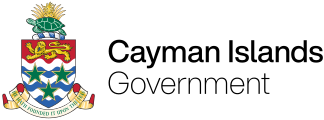Conserving the Cayman Sage
Overview
The public is invited to submit comments on a plan to conserve Salvia caymanensis, known locally as Cayman sage.
Conservation Status
The Cayman Sage is a flowering herb native exclusively to Grand Cayman. Originally described in 1900 under a different name, and then published as a unique species by Proctor in 1986, it was suspected to have become extinct until rediscovered growing in the road verge on the Queen’s Highway in 2007.
Although this wild population has apparently died out, seeds collected from it and grown in the QE II Botanic Park have now generated multiple generations of this plant in very large numbers, planted out in the Botanic Park and elsewhere.
This species is classed as Critically Endangered in the IUCN Red List, and is protected under the National Conservation Act (“NCA”), Schedule 1 Part 1 as protected at all times.
Why your views matter
The objective of this Conservation Plan is to restore a self-sustaining population of Cayman Sage in the wild, and to ensure an abundant population in cultivation protects the genetic diversity of the species and serves as a reserve during the restoration phase and beyond.
Strategies include propagating large numbers of the plant in collaboration with QEII Botanic Park and allow the park to sell Cayman Sage plants to the public on Grand Cayman only. The public are also encouraged to plant it in gardens and diverse habitats throughout Grand Cayman.
Members of the public on Grand Cayman can hold, propagate, plant, buy and sell specimens of cultivated Cayman Sage, but specimens may not be transferred to ownership outside of Grand Cayman. This is intended to retain Cayman Sage’s natural distribution as a plant unique to that one island.
Cayman Sage in the wild is fully protected at all times and may not be used as a source for cultivation or disturbed in any other way without a Permit under the NCA.
Plants in private ownership and subsequently being propagated, are all classed as cultivated stock.
How your information will be used
Your feedback will help shape the Conservation Plan.
A copy of the proposal may be downloaded or a hard copy picked up from the Department of Environment offices at Environmental Centre 580 North Sound Road.
You may send questions or comments in writing by email to ConservationCouncil@gov.ky, by hand delivery to DoE offices (per the address above), or mailed to PO Box 10202, Grand Cayman KY1-1002.
What happens next
Your feedback will support the objective of restoring a self-sustaining population of Cayman Sage in the wild, and to ensure an abundant population in cultivation protects the genetic diversity of the species and serves as a reserve during the restoration phase and beyond.
Audiences
- Consultation
Interests
- public consultation
- Sustainability


Share
Share on Twitter Share on Facebook